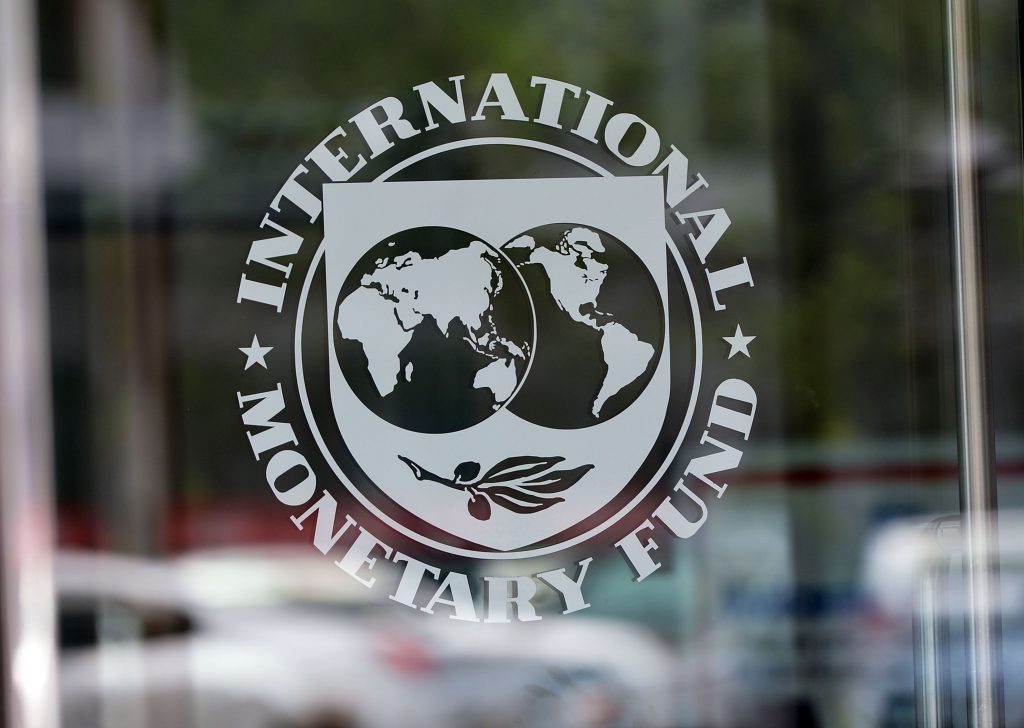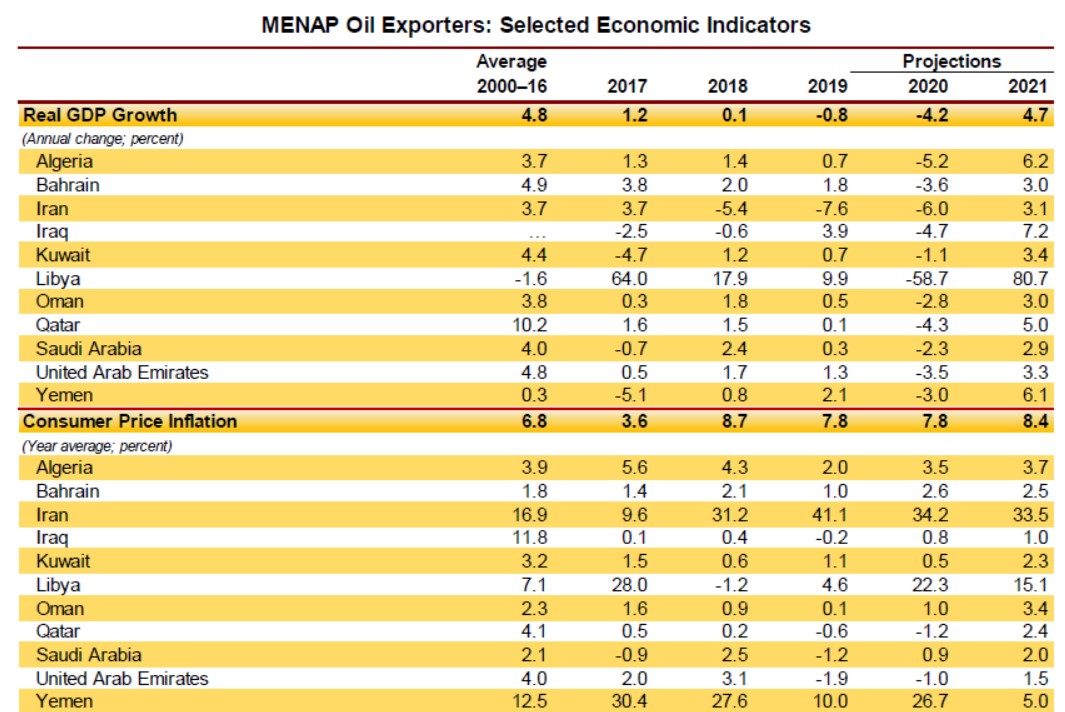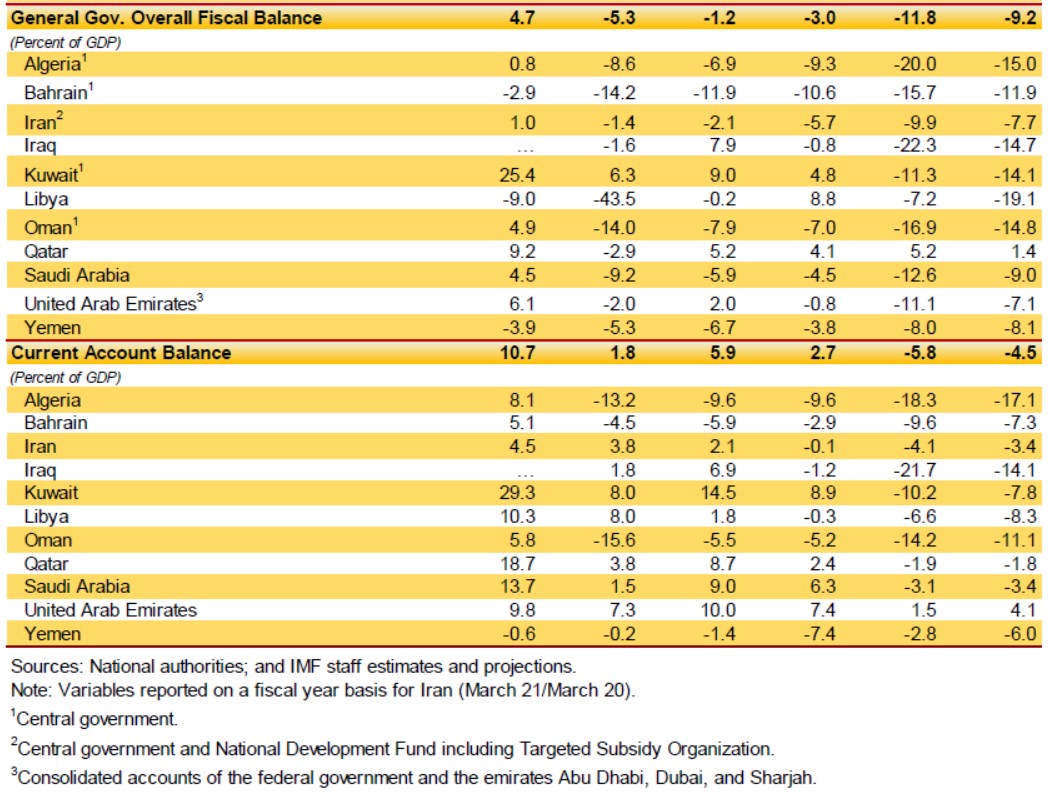The International Monetary Fund (IMF) is expecting severe deterioration in the global economy, including global budget balances and public, debt ratios due to the developing COVID-19 outbreak and the imposed lockdown measures.
“Once the recovery has happened and we are past the pandemic phase, for advanced economies it would be essential to undertake a broad-based stimulus,” IMF chief economist Gita Gopinath told reporters. “This would be even more effective if it were coordinated across all the advanced economies.”
In fact, the IMF predicts the deepest recession in almost a century this year as economic activity shuts down to contain the COVID-19 pandemic.
The sudden shock caused by the spread of the coronavirus meant it had been forced to tear up an estimate it made just three months ago of 3.3% global growth this year and replace it with an expected contraction of 3%.
According to the IMF, global fiscal deficits will more than double to 9.9% of gross domestic product this year from 3.7% in 2019. The IMF notes that global debt will jump 13.1 percentage points to 96.4% of GDP, with the figure jumping to 122.4% of GDP in advanced economies from 105.2% in 2019.
The developed economies of the West will likely shrink by 6.1% on average. Italy and Spain – the two worst-affected European economies from COVID-19 – will see the GDP falls of 9.1% and 8%, respectively. The UK’s drop in output is put at 6.5%. China’s growth rate is expected to fall from 6.1% last year to 1.2% in 2020, while India is on course to expand by 1.9%, down from 4.2%.
Adjusted to take account of population changes, the IMF’s forecasts were even gloomier. GDP per head – one measure of living standards – is expected to fall globally by 4.2% in 2020 and by 6.5% in advanced countries.
The UN report on the effect of the COVID-19 outbreak on the situation in the Arab region says that it will contribute to the poverty and food insecurity:
The Arab region will witness an additional 8.3 million people falling into poverty. The economic slowdown caused by COVID-19 is expected to negatively impact jobs, incomes, business and the flow of remittances in the Arab region, resulting in a shrinking middleincome class. Consequently, an estimated 8.3 million people will fall into poverty, meaning that a total of 101.4 million people in the region will be classified as poor. The consequences of this crisis could be particularly severe on vulnerable groups, especially women and young adults, and those working in the informal sector who have no access to social protection and unemployment insurance. The challenge is further compounded by a lack of social protection floors and noninclusive social protection schemes in some Arab countries.
The economic downturn is expected to intensify existing food insecurity in the region, specifically for the poor. Currently, around 50 million people are undernourished in the Arab region. Increased poverty could lead to an additional 1.9 million people becoming undernourished. With the closure of schools in several countries, school feeding programmes that substantially contribute to children’s food security have been interrupted.
The Arab region spends around $110 billion on food imports, which is about 4 per cent of its GDP. More than 50 per cent of daily calories consumed in the Arab region are from imported food. Wheat is the main consumed cereal in the region, with about 127 kg per capita annually, but 65 per cent of wheat consumption is imported. Rice is another major consumption item among cereals, but the region is a net importer of rice. Wheat and rice together represent around $11 billion of the region’s trade deficit.
The Arab region may witness food shortage and price hikes if a prolonged Corona pandemic disrupts global food supplies.
The IMF says that governments around the world have taken fiscal actions amounting to about $8 trillion, including more than $2 trillion in the US.
Over the past weeks, the IMF has been consistently calling on governments to pay more attention to the economic situation despite the global COVID-19 hype. Germany already followed this advice.
The current economic crisis will deliver the main blow to the lower middle class and the working class of the world population. The negative economic developments will contribute to the increase of mortality and unemployment rate, and the decrease of standards of living.









Can’t predict real world infastructures and assets like pol,gas,ores,coal,uranium,metals,gold etc
how on earth can nthey ever be accurate in anything to do with nations wealth?
Nations with the worse debt will be hit the hardest,if anything fake + is only just that,good by hegemon!
Western hype and overreaction is destroying many economies. Only China has come out as the real winner.
As shown in this article, the United States government has recently granted potential COVID-19 vaccine manufacturers a massive favour:
https://viableopposition.blogspot.com/2020/04/vaccine-liability-in-covid-19-era.html
Thanks to Andrew Cuomo, 19.5 million New Yorkers are now potential lab rats for Big Pharma with no recourse should the cure prove to be worse than the disease.
IMF sees the global economy contracting, but is delighted about nations getting even more intergenerational debt from IMF. Everything is going according to plan…